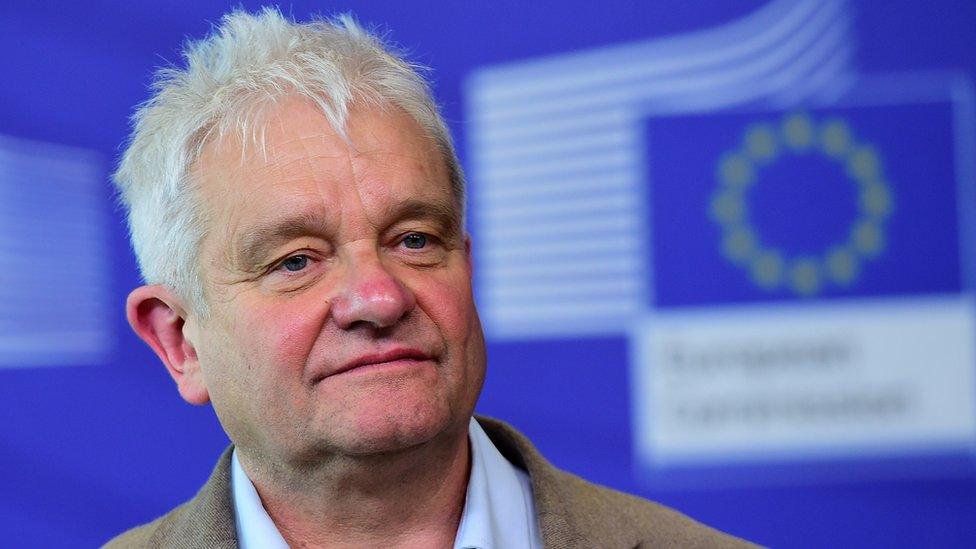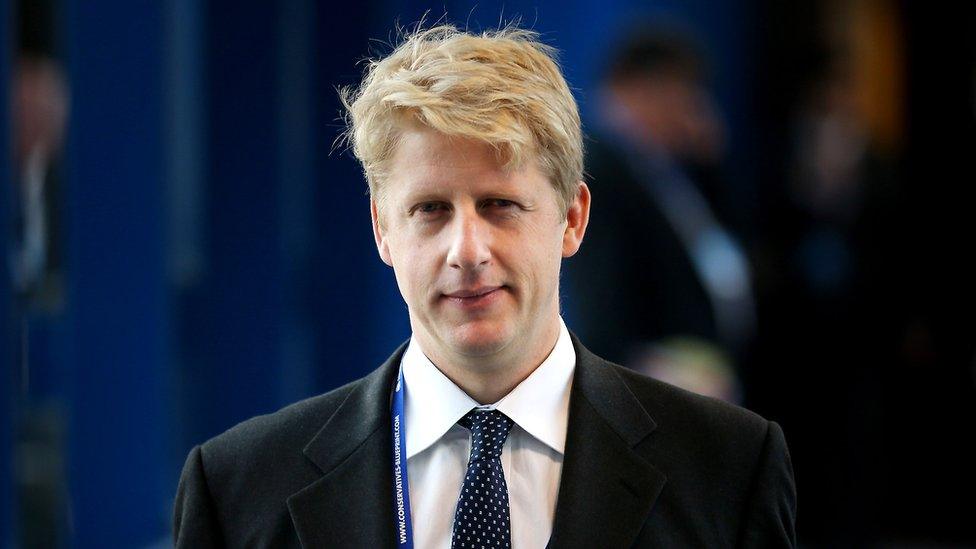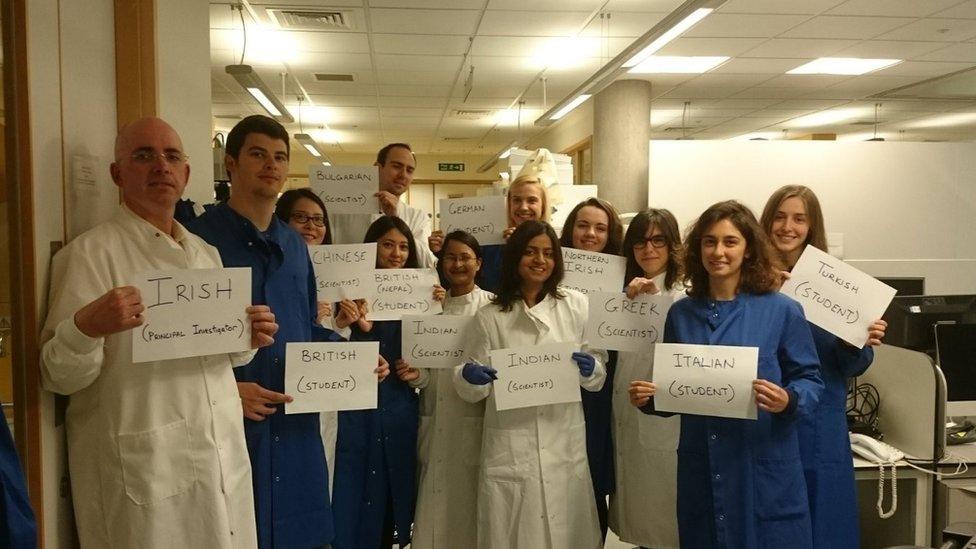What future for post-Brexit UK science?
- Published

UK science is one of the biggest winners from Britain's membership of the EU. Now it stands to lose the most from Brexit.
UK universities receive 10% of their research funding from the EU - amounting to just over a billion pounds a year. Full membership of the main European funding body requires countries to allow free movement of people.
One of the most respected scientists in the land, Prof Sir Paul Nurse, has said that leaving jeopardises the world-class science that the UK is known for and so risks damaging the economy.
The Nobel Prize winner added that, even if the government agrees to reimburse the lost funds - which leave campaigners had suggested - it would not replace the important international collaborations that British science needs in order to remain at the forefront of research.

Nobel Prize winner Prof Sir Paul Nurse has warned that free movement needs to continue
"UK science will not thrive" unless free movement continues in any post-Brexit deal, he says.
However, Prof Jeremy Farrar, head of the influential Wellcome Trust, cautioned Sir Paul and other leaders of the UK's research community from being too bullish in their demands. He reminded them that a majority of the electorate, many of whom were concerned about unrestricted immigration from the EU, had voted to leave.
Mirroring Sir Paul's words, Prof Farrar said: "UK science will not thrive unless it has the support of wider society."
And as the dust settles, there's no doubting that is the message that will come back from the government as the scientific community tries to salvage what it can from the deal it had from the EU.
The leave campaign group, Scientists for Britain, has consistently pointed out that there are many countries outside of the EU that receive EU funding. And its spokesmen say that a points-based visa system would enable UK universities to continue to attract the brightest and best - as they do from the US, Australia, Canada and other non-EU countries.
The priority for the science community currently is to make the 30,000 or so EU citizens that currently work in British universities feel secure.

Science Minister Jo Johnson wants business as usual from the UK's research community
According to the Royal Society, which represents the country's elite scientists, many of these EU citizens are wondering whether they will be able to continue to work in the UK in two or three years' time.
Its president, Prof Sir Venkatraman Ramakrishnan, has called on the government to guarantee their residency, and to do so now, to end the insecurity felt by many.
But that is unlikely until the Conservative Party elects a new leader - and even then the uncertainty will continue for many months, if not years.
There is also uncertainty about access to EU funding. Will the remaining members of the main European funding body allow a post-Brexit UK to have associate membership and apply for funds in the way that Israel and Turkey do?
On Twitter there is plenty of chatter of UK research groups being asked to remove their names from grant applications already and ending participation in student exchange programmes, though there is no actual proof that this is happening.
The priority for the Science Minister Jo Johnson has been to calm nerves and remind the scientific community that Britain is still a member of the EU and legally nothing has changed. He says he wants business as usual from the research community and for UK scientists to continue to apply for EU grants and further their collaborations.
And despite the current uncertainty, which extends beyond the research and education sectors, the only option for the time being is just to get on with the work.
- Published30 June 2016

- Published29 June 2016

- Published28 June 2016
